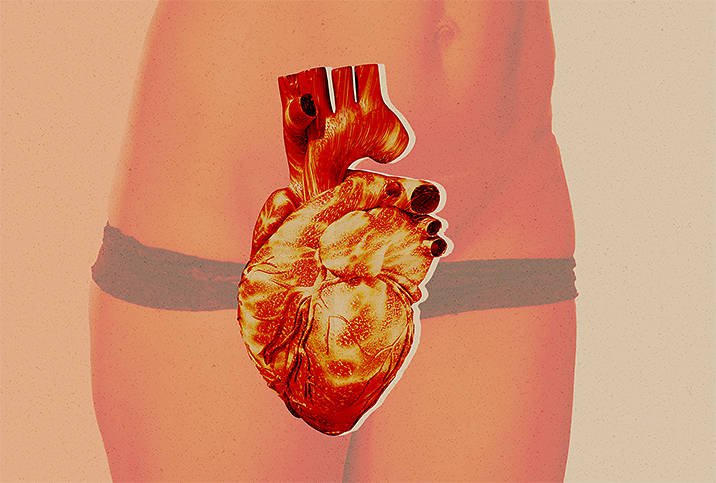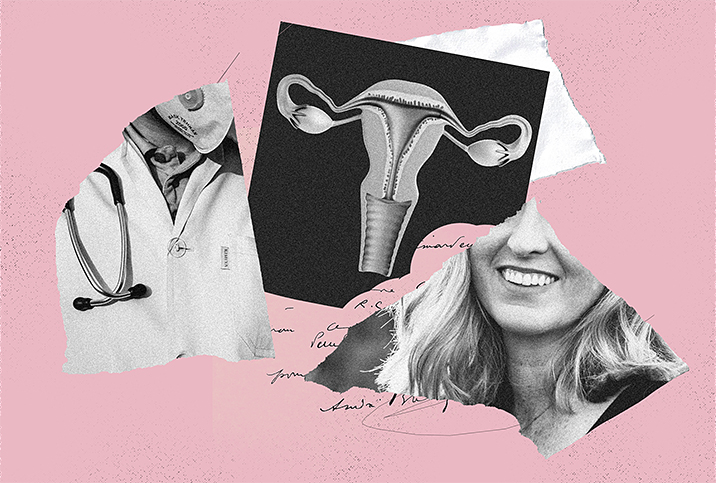Research Links Early Hysterectomies to Cardiovascular Problems

If you struggle with a chronic gynecological condition, chances are you've discussed a hysterectomy with your physician. Many patients express frustration when their doctor refuses to perform a hysterectomy, but it may be out of concern for their cardiovascular health. A Minnesota-based research study focused on the cardiovascular health of more than 2,000 women who had undergone a hysterectomy and found that over a 20-year span, these women were twice as likely to experience coronary artery and metabolic diseases.
The most troubling of these findings was the increased risk of congestive heart failure for women who received a hysterectomy at or before the age of 35. These risks seem to increase if a complete hysterectomy (removing the ovaries and uterus) is performed at a young age.
This may seem mysterious, but when you consider the role of the ovaries and uterus in your physiology's delicate chemistry, it makes sense that a partial or complete hysterectomy would impact other parts of your body—including your heart. The ovaries and uterus are responsible for producing and maintaining estrogen levels in your body, and without your ovaries and uterus, estrogen levels cannot be properly maintained.
When women have their ovaries removed, they will immediately begin menopause, and while this can be regulated with artificial estrogen, it is not as effective as the estrogen your body creates, which can lead to other impacts within the body.
Researchers know that estrogen not only regulates your cycle, but also maintains bone density, manages cholesterol, maintains your moods, and may also help maintain the flexibility and strength of your blood vessels.
The study referenced above "shows that hysterectomy is associated with an increase in cardiovascular risk factors and conditions, but this doesn't mean that the hysterectomy caused the conditions," explained Mary N. Walsh, M.D., MACC, medical director of the Heart Failure and Cardiac Transplantation programs at Ascension St. Vincent Heart Center in Indiana. "Women with uterine conditions who are considering a hysterectomy should talk to their doctor about all alternatives for treatment."
This insight is important because while having a hysterectomy is linked to an increased risk of cardiovascular conditions, you may already be at risk for these diseases because of your lifestyle and family history. Communicating with your doctor is essential because they can help you weigh your options and understand the full risks of the procedure while maintaining a constructive doctor-patient relationship.
The risk of other health conditions
Though having a hysterectomy is linked to an increased risk of developing cardiovascular and other health conditions, it's important to mention that an unhealthy lifestyle that includes low activity, poor nutrition and risk-increasing behaviors such as smoking and excessive alcohol consumption increases your risks of developing chronic health conditions at a comparable rate to a hysterectomy.
In fact, according to Jennifer Lewey, M.D., MPH, cardiologist and director of Penn Women's Cardiovascular Health Program, having risk factors that increase your potential for cardiac complications further compounds the increased risk after a hysterectomy. "These risk factors include having high cholesterol, high blood pressure or obesity. In this scenario, the hysterectomy doesn't 'cause' heart disease. Instead, we think that the woman's risk factors may lead to both heart disease and the gynecologic reasons for needing a hysterectomy."
A Minnesota-based research study focused on the cardiovascular health of more than 2,000 women who had undergone a hysterectomy and found that over a 20-year span, these women were twice as likely to experience coronary artery and metabolic diseases.
Maintaining a healthy diet, understanding your family history, and avoiding behaviors that can be damaging to your health is key in preventing chronic conditions, regardless of your reproductive health. However, this is especially important if you plan on having a hysterectomy.
A hysterectomy with or without ovary removal (oophorectomy) can impact your metabolism, mood stability and many other aspects of your health. Understanding these risks can help you (with the counsel of your physician) to determine if a hysterectomy is the proper treatment for your gynecological condition.
Should you have a complete hysterectomy (removal of the ovaries), your risk of bone loss, heart disease and metabolic changes is greatly increased. Premature menopause will begin immediately, but often your physician will wait until you have fully recovered from your surgery to begin estrogen therapy.
Weighing the risks
The most important aspect of choosing the right treatment for you is being able to effectively weigh the risks. While these risks are well documented, few women are aware of them before surgery.
It's easy for our physicians to forget we might not understand all the information, so don't be afraid to ask these important questions. Whether your doctor is recommending or avoiding a hysterectomy, ask questions to clarify why they have chosen this particular treatment plan.
Lewey explained that many women are not adequately counseled about the specific risks either because their doctors do not fully understand the risks or they are uncomfortable discussing these sensitive topics. Ultimately, she recommends all women "talk to their gynecologist and primary care doctor about their risk factors and how to reduce their risk. Heart disease is the leading cause of death in women, and knowing how to reduce the risk of heart disease at a young age can have a high impact on improving a woman's quality of life."

















